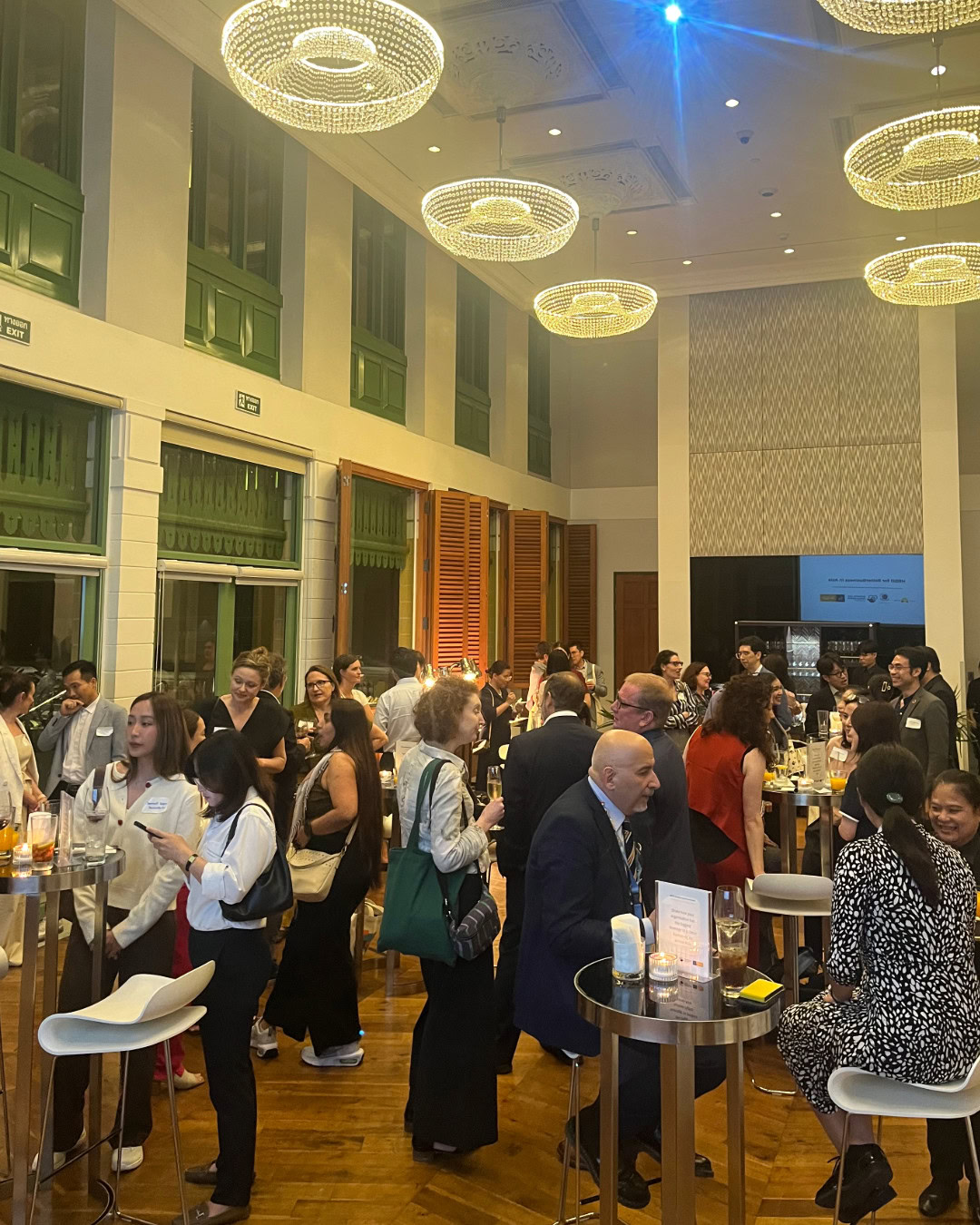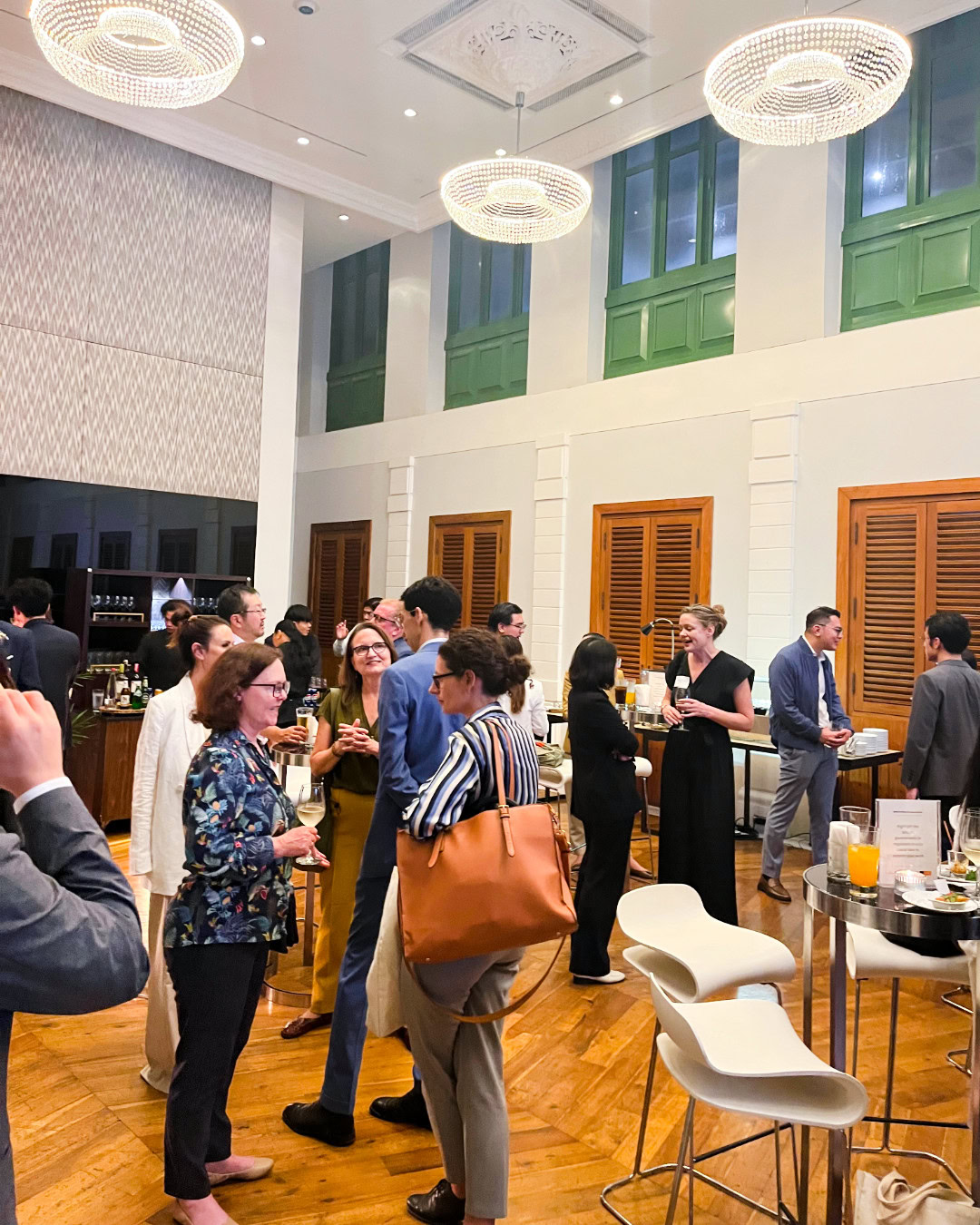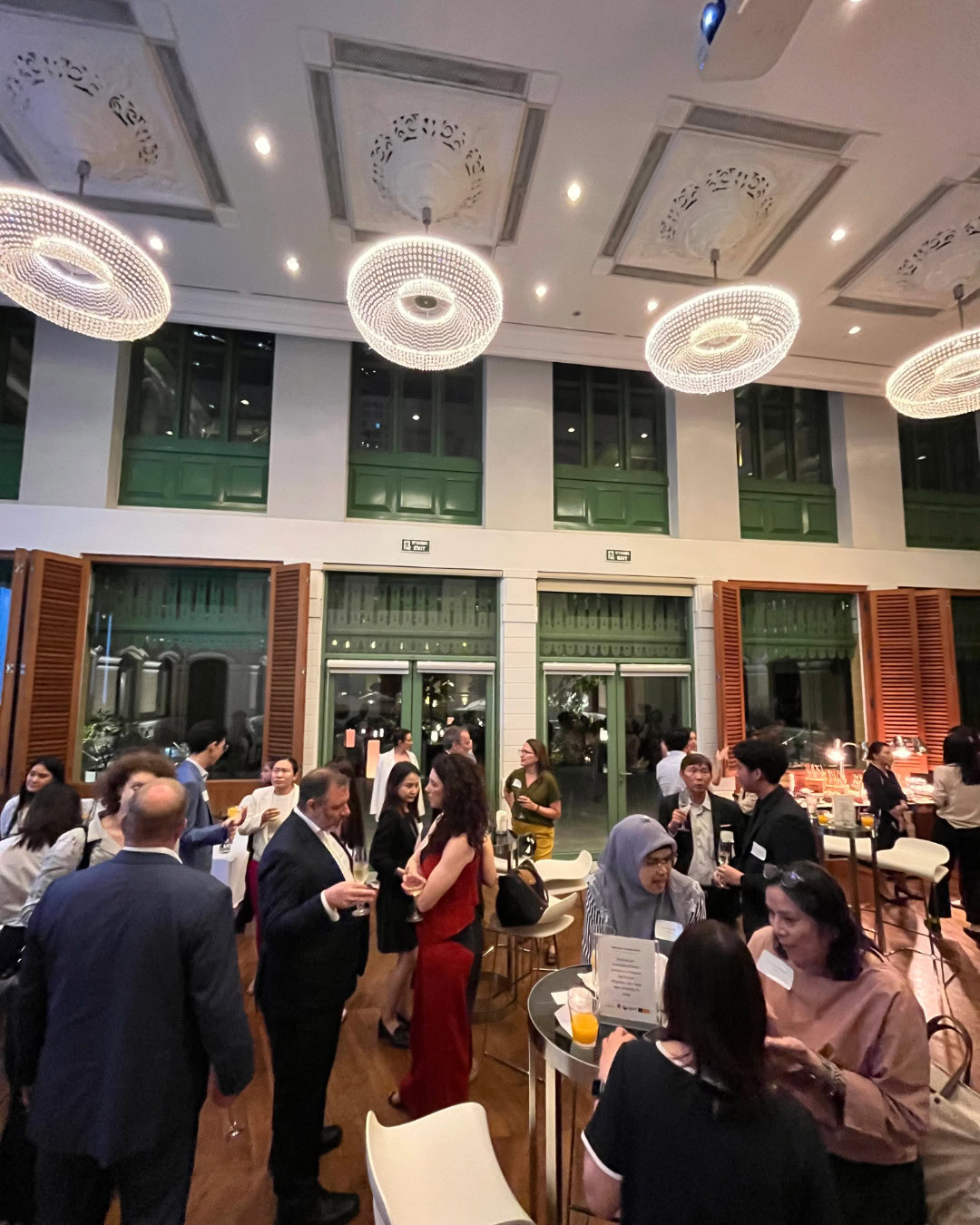At the United Nations Forum on Responsible Business and Human Rights held 16-19 September 2025 in Bangkok, Thailand – which united over 150 partner organisations and 1,200 attendees from across sectors – The Consumer Goods Forum (CGF) convened global leaders to explore how to redesign recruitment markets and embed human rights into global supply chains.
In partnership with Woolworths Group, the session “Redesigning Recruitment Markets: Creating an Ethical Recruitment Marketplace” brought together brands, experts, and advocates to address the challenge of forced labour from a market-driven, Asia-Pacific perspective.
Perspectives from the Panel
Rachel Elliott, General Manager Sustainability – Impact Narrative & Human at the Woolworths Group, shared the retailer company perspective, highlighting the limits of fragmented efforts and the power of industry collaboration:
“There is no single playbook and no single intervention that will solve this. Our learning shows we are at the limits of what we can do on our own – collaboration is absolutely key. Collaboration is how we can solve this together, and collaboration is how we can bring scale. No single actor owns the problem or the solution – we are all in it together.” – Rachel Elliott
Catherine Parsons, Senior Advisor, Business and Government Engagement at Walk Free, emphasised the importance of government engagement and enabling policy environments that support ethical recruitment markets:
“Ethical recruitment won’t scale if it’s just rules on paper. It will only succeed when governments and businesses learn from one another, co-design practical systems, and share data and capacity. It’s about moving from government regulation and business compliance to a model of shared responsibility – and that’s how we make fair recruitment the default in the region.” – Catherine Parsons
Aarti Kapoor, Founder & Executive Director at Embode, addressed the market drivers and barriers that must be tackled to make ethical recruitment the norm, bringing in insights from her work with suppliers and workers in the region:
“An ethical recruitment marketplace sounds like a no-brainer, but no one has actually talked about it as a marketplace until now. In a capitalist world, money makes the system turn – so changing the way trade operates is essential. Business and profit are not bad words. The challenge is to make profit ethically, to build a system that is both commercially viable and fair for workers.” – Aarti Kapoor
Why the Ethical Recruitment Marketplace Matters
The Ethical Recruitment Marketplace, in development by the CGF’s Human Rights Coalition and spearheaded by the Woolworths Group in partnership with industry and civil society, is designed to move beyond fragmented initiatives. It seeks to:
- Create a shared ecosystem of services and partners,
- Align business action with government and supplier engagement, and
- Build a sustainable, market-driven solution to exploitative recruitment.
The discussion underscored that only by working together – brands, governments, suppliers, and civil society – can the systemic drivers of unethical recruitment be addressed at scale.
Couldn’t join us in Bangkok? Watch the full discussion on the Ethical Recruitment Marketplace, read the full report, or visit the UNDP Business and Human Rights YouTube channel for more content.
Networking for HRDD: Side Event in Bangkok
As part of the Forum week, the CGF also co-hosted a side event, “HRDD for Better Business in Asia”.
The event, in partnership with Walk Free and the UN Global Compact Network Thailand, brought together over 50 actors from business and civil society to hear from and network around the hosts collaborative initiatives and business leaders experiences implementing HRDD in Asia.
“Across our members, we see growing awareness of human rights due diligence, but it is still uneven. For larger companies there is real progress, yet many smaller ones struggle. As Thailand develops its HRDD law, transformation must be comprehensive – recruitment costs, migrant workers’ income, and anti-corruption need to be tackled together.” – Kuanruthai Siripatthanakosol, Deputy Secretary-General, UN Global Compact Network Thailand
“Policy on paper is not enough. The real challenge is equipping suppliers to do the right thing – putting in place systems, step by step, and showing progress over perfection. That’s why we’ve worked with peers through the CGF: so suppliers hear the same message from all of us and know that ethical recruitment is not optional, it’s the direction the whole industry is moving.” – Supavadee (Pink) Chotikajan, Global Human Rights Lead, Mars Petcare
“Remediation is just not enough. We need to go deeper, to the grassroots drivers of risk in our supply chains. That means moving beyond audits, working directly with suppliers to build systems, and recognising that progress over perfection – through collaboration – is the only way to create lasting change.” – Rachel Elliott, General Manager Sustainability – Impact Narrative & Human Rights, Woolworths Group
Designed as an informal peer-learning and networking session, the gathering created a space for open dialogue on practical human rights due diligence (HRDD) implementation and opportunities for business collaboration across the region.
Regional Context
These conversations come at a pivotal moment for the Asia-Pacific region. Thailand is developing a mandatory human rights and environmental due diligence law, while Australia continues to shape expectations through its Modern Slavery Act and related enforcement. These emerging frameworks highlight both the urgency and the opportunity for collaborative, market-based approaches like the Ethical Recruitment Marketplace – enabling business to go beyond compliance and deliver lasting impact for workers.
The Consumer Goods Forum invites stakeholders across sectors to join this transformative effort. To learn more and get involved in the Ethical Recruitment Marketplace, contact .
For more information on the Human Rights Coalition’s work, visit www.tcgfsocial.com
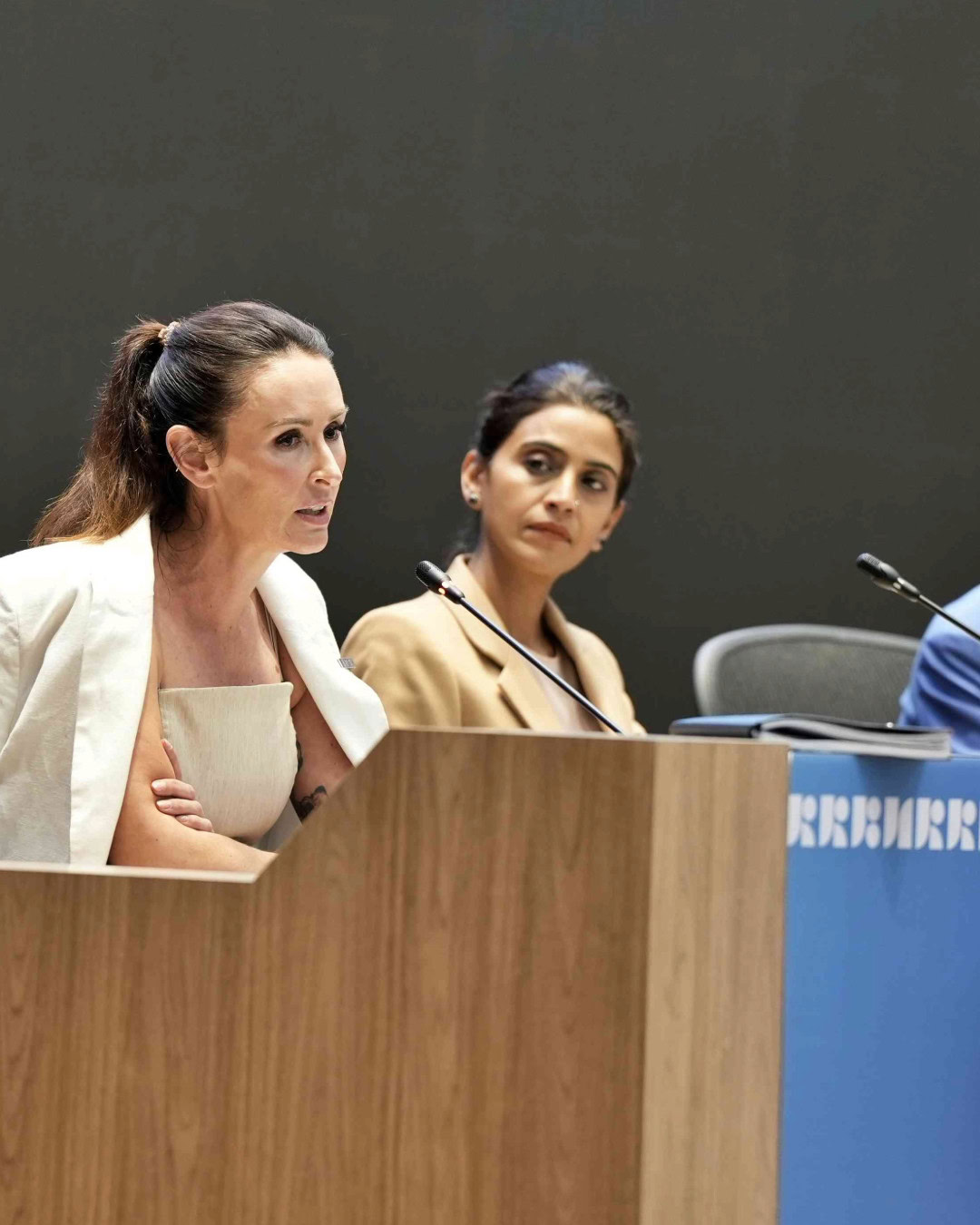
 “Ethical recruitment won’t scale if it’s just rules on paper. It will only succeed when governments and businesses learn from one another, co-design practical systems, and share data and capacity. It’s about moving from government regulation and business compliance to a model of shared responsibility – and that’s how we make fair recruitment the default in the region.” – Catherine Parsons
“Ethical recruitment won’t scale if it’s just rules on paper. It will only succeed when governments and businesses learn from one another, co-design practical systems, and share data and capacity. It’s about moving from government regulation and business compliance to a model of shared responsibility – and that’s how we make fair recruitment the default in the region.” – Catherine Parsons 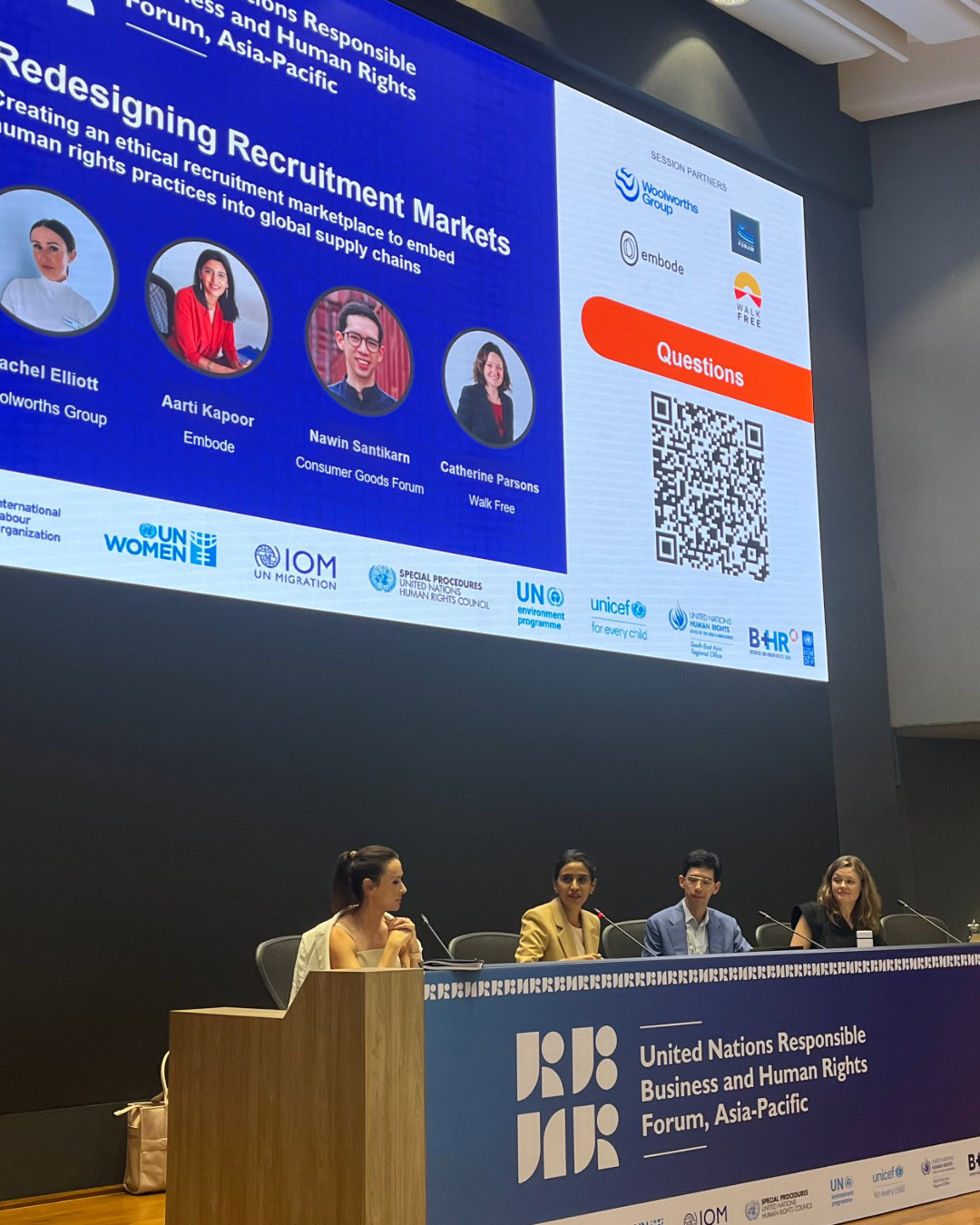 “An ethical recruitment marketplace sounds like a no-brainer, but no one has actually talked about it as a marketplace until now. In a capitalist world, money makes the system turn – so changing the way trade operates is essential. Business and profit are not bad words. The challenge is to make profit ethically, to build a system that is both commercially viable and fair for workers.” – Aarti Kapoor
“An ethical recruitment marketplace sounds like a no-brainer, but no one has actually talked about it as a marketplace until now. In a capitalist world, money makes the system turn – so changing the way trade operates is essential. Business and profit are not bad words. The challenge is to make profit ethically, to build a system that is both commercially viable and fair for workers.” – Aarti Kapoor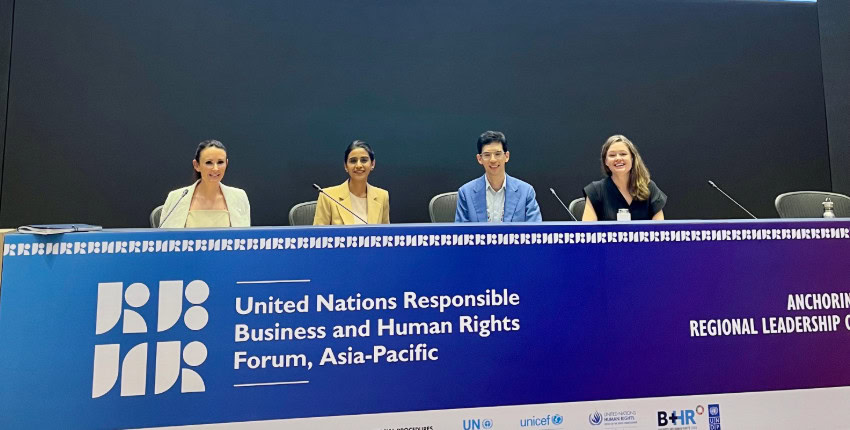
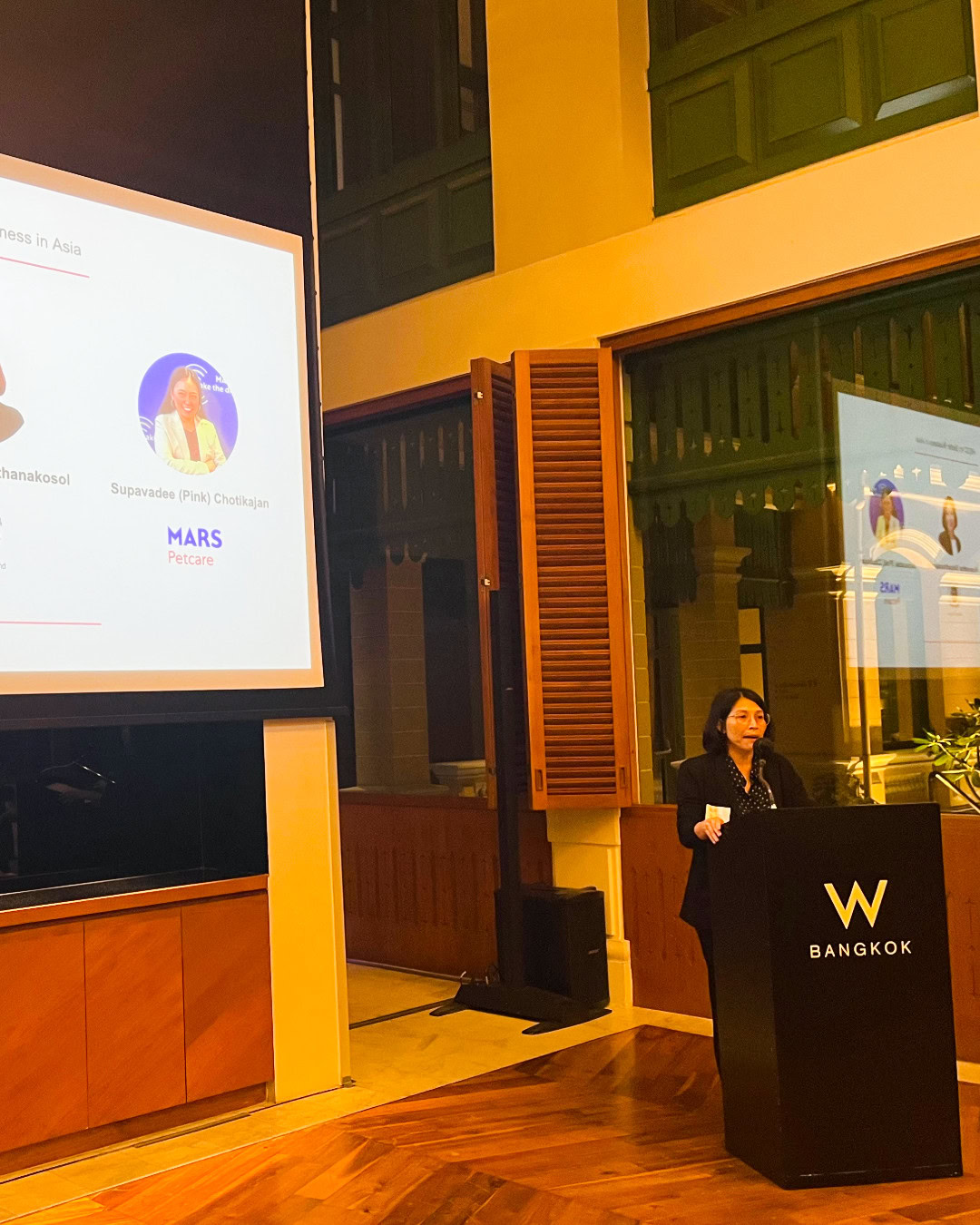 “Across our members, we see growing awareness of human rights due diligence, but it is still uneven. For larger companies there is real progress, yet many smaller ones struggle. As Thailand develops its HRDD law, transformation must be comprehensive – recruitment costs, migrant workers’ income, and anti-corruption need to be tackled together.” – Kuanruthai Siripatthanakosol, Deputy Secretary-General, UN Global Compact Network Thailand
“Across our members, we see growing awareness of human rights due diligence, but it is still uneven. For larger companies there is real progress, yet many smaller ones struggle. As Thailand develops its HRDD law, transformation must be comprehensive – recruitment costs, migrant workers’ income, and anti-corruption need to be tackled together.” – Kuanruthai Siripatthanakosol, Deputy Secretary-General, UN Global Compact Network Thailand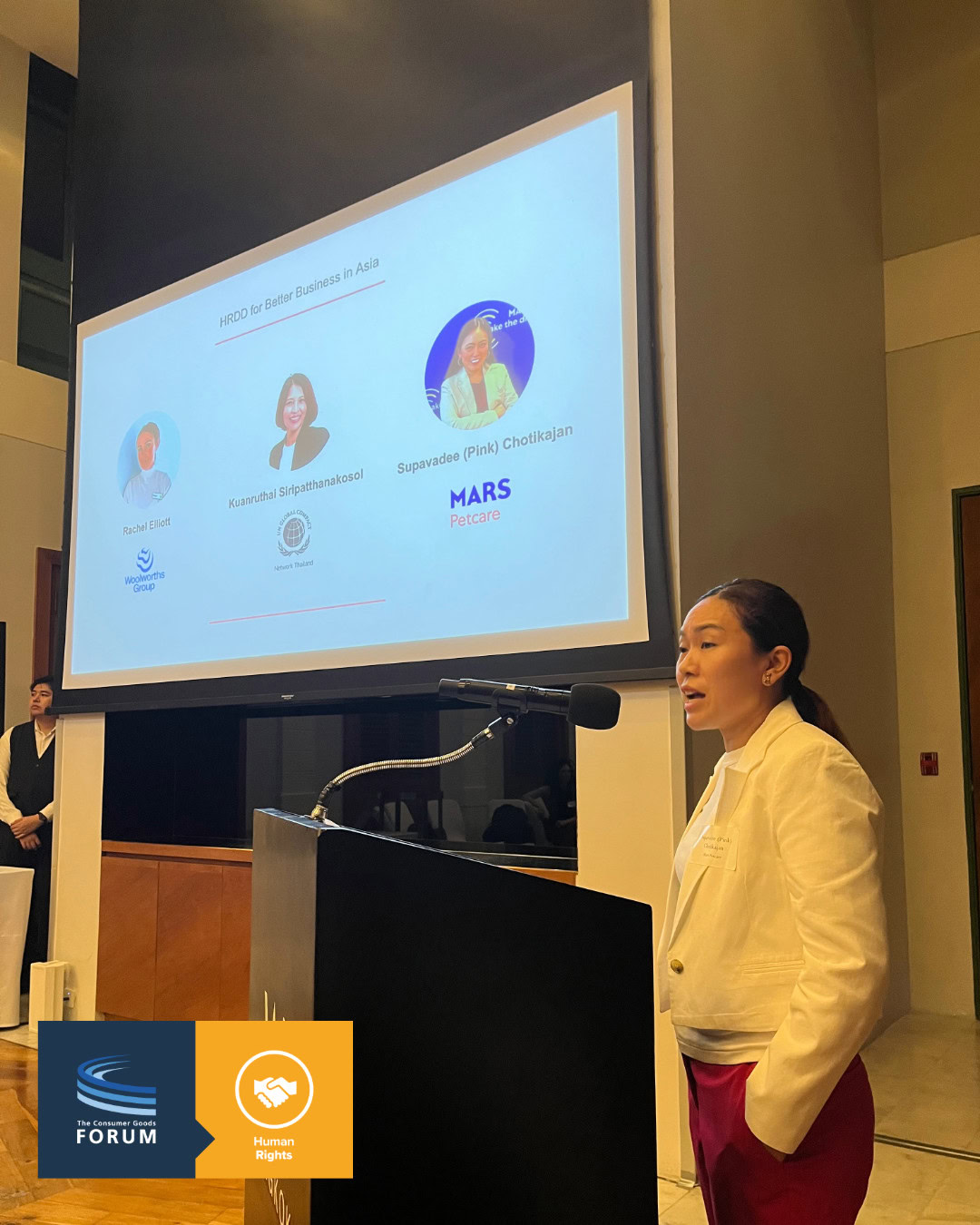 “Policy on paper is not enough. The real challenge is equipping suppliers to do the right thing – putting in place systems, step by step, and showing progress over perfection. That’s why we’ve worked with peers through the CGF: so suppliers hear the same message from all of us and know that ethical recruitment is not optional, it’s the direction the whole industry is moving.” – Supavadee (Pink) Chotikajan, Global Human Rights Lead, Mars Petcare
“Policy on paper is not enough. The real challenge is equipping suppliers to do the right thing – putting in place systems, step by step, and showing progress over perfection. That’s why we’ve worked with peers through the CGF: so suppliers hear the same message from all of us and know that ethical recruitment is not optional, it’s the direction the whole industry is moving.” – Supavadee (Pink) Chotikajan, Global Human Rights Lead, Mars Petcare 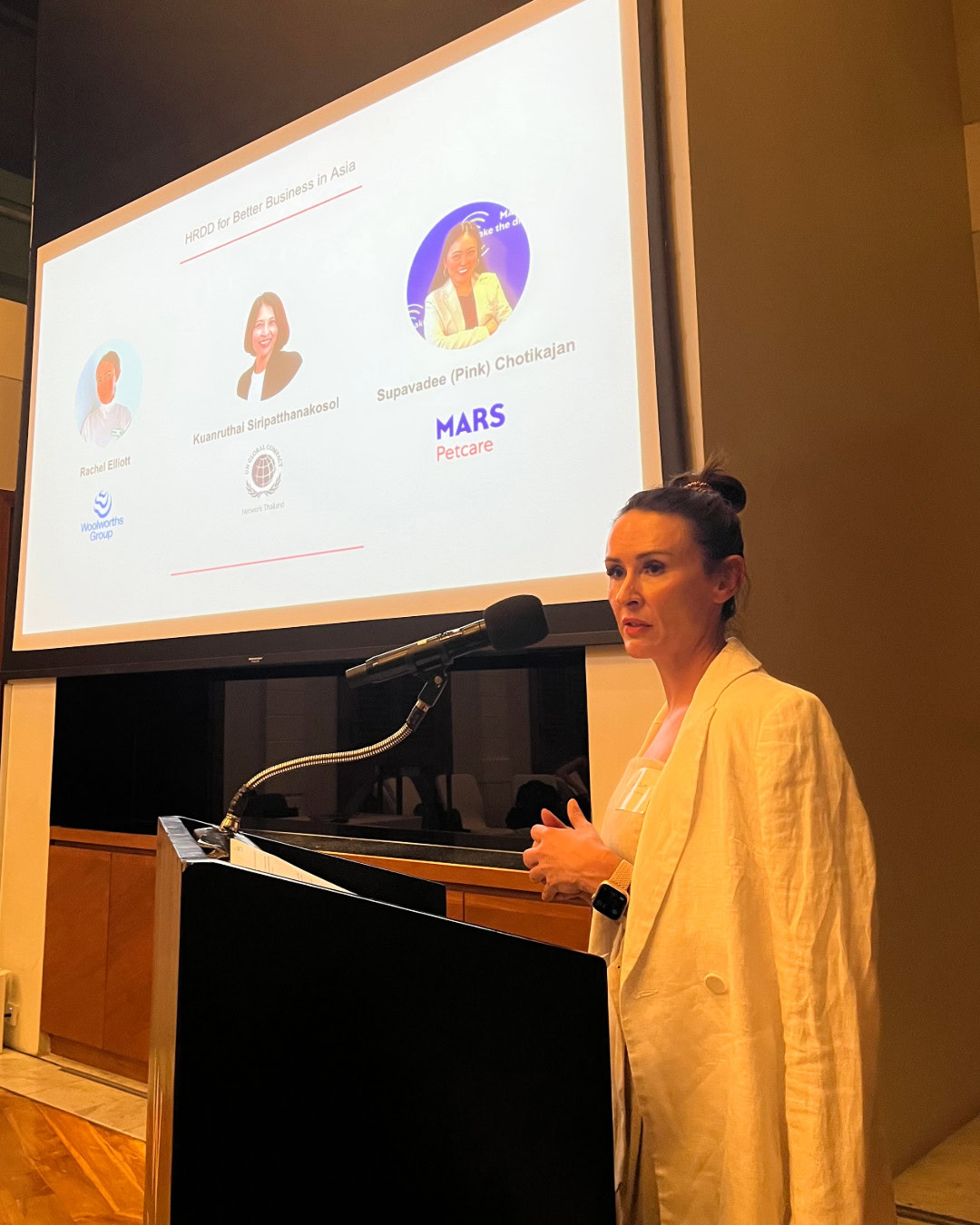 “Remediation is just not enough. We need to go deeper, to the grassroots drivers of risk in our supply chains. That means moving beyond audits, working directly with suppliers to build systems, and recognising that progress over perfection – through collaboration – is the only way to create lasting change.” – Rachel Elliott, General Manager Sustainability – Impact Narrative & Human Rights, Woolworths Group
“Remediation is just not enough. We need to go deeper, to the grassroots drivers of risk in our supply chains. That means moving beyond audits, working directly with suppliers to build systems, and recognising that progress over perfection – through collaboration – is the only way to create lasting change.” – Rachel Elliott, General Manager Sustainability – Impact Narrative & Human Rights, Woolworths Group